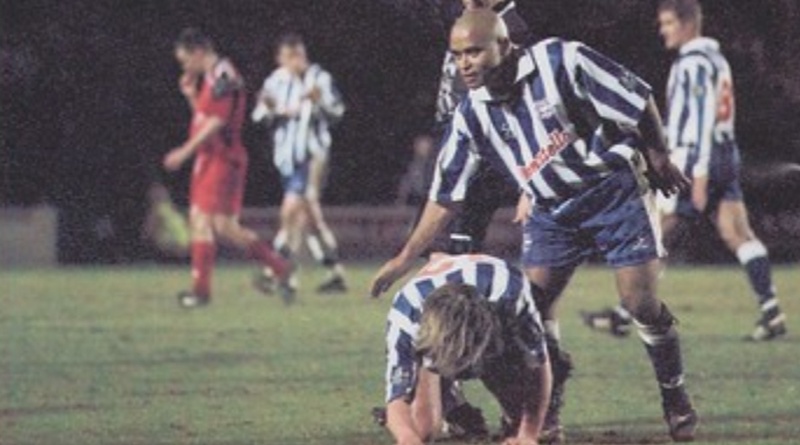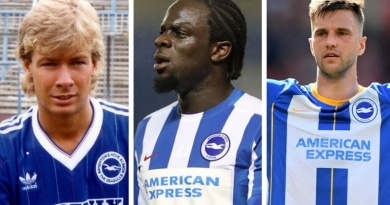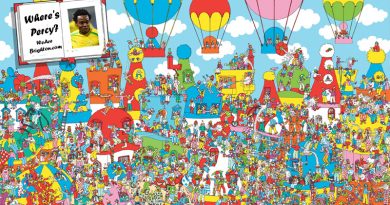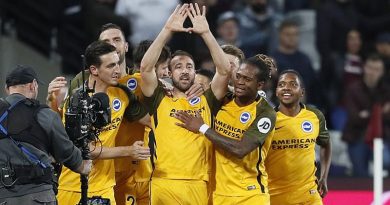What happened to Micky Adams’ first Brighton line up?
There were just 2,207 Brighton & Hove Albion supporters at Priestfield Stadium on Tuesday April 13th 1999 as Micky Adams took charge of the Albion for the first time.
Shrewsbury Town were the visitors and although both clubs could still mathematically be relegated, there seemed little chance of that happening.
With five games remaining, Brighton were nine points clear of bottom club Scarborough and Shrewsbury eight ahead of the wonderfully nicknamed Seadogs.
These were the days when only one side dropped out of Division Three, and so this was something of a dead rubber between two sides with nothing left to play for in terms of league position.
In terms of their future, Brighton’s players suddenly had a lot to play for. Many of them were out of contract in two months time.
The appointment of Adams as boss left them with just 450 minutes of competitive football to impress a new manager who was expected to carry out a major summer overhaul of his squad.
Of the 13 players that Micky Adams selected for his first game in charge of Brighton, eight would go onto leave the Albion at the end of the 1998-99 season.
Gary Hart scored the only goal of the game in the 19th minute, giving Adams the perfect start. It was of course the beginning of a golden period in Brighton history – and here’s what happened to the team who kicked it off.
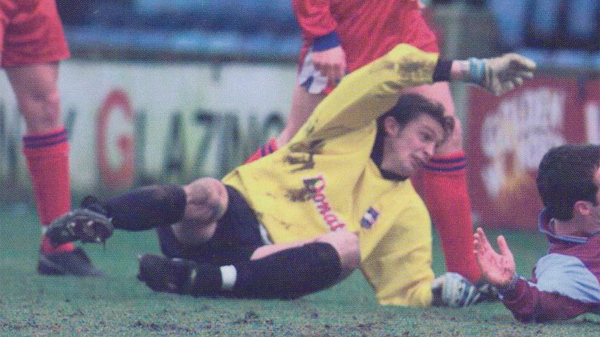
Mark Ormerod
The writing had looked one the wall for Mark Ormerod in the summer of 1998 when Brighton made a rare cash signing, paying £20,000 to Fulham for Mark Walton. Walton had begun the season as Brian Horton’s number one, but a string of poor performances culminated in Ormerod being recalled in October as the Albion climbed into play off contention.
Ormerod kept the gloves for the remainder of the season, recording a clean sheet as Micky Adams took charge of Brighton for the first time in the win over Shrewsbury. Adams would keep his faith with Ormerod for the opening weeks of the 1999-00 season, but Walton had dropped two stone over the summer and reclaimed the number one shirt a month into the first campaign back at Withdean.
Ormerod was released in the summer of 2000 and went onto play for Woking, Dorchester Town and Worthing. The WeAreBrighton.com team randomly bumped into him at the Etihad Stadium before England played Iceland in a friendly in June 2004 and he looked very well.
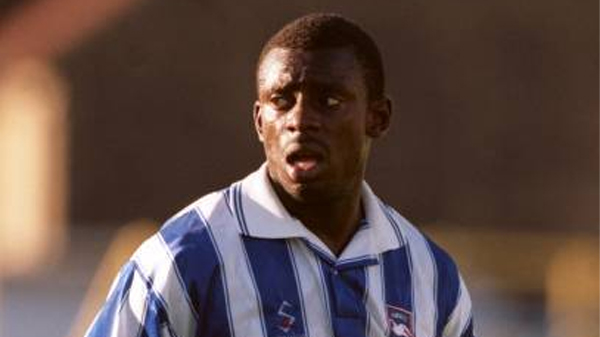
Michael Bennett
Michael Bennett was a much-maligned figure during his one season with the Albion, a player who supporters never really took to due to a variety of reasons. He had spent the entire campaign playing in central midfield until he was switched to right back by Martin Hinshelwood for Hinshelwood’s one game in caretaker charge. That was the 2-1 victory at Plymouth Argyle three days before Shrewsbury rocked up at the Priestfield and Adams persisted with Bennett in this new role for his first game at the helm.
It later transpired that Bennett struggled with his mental health during his time with Brighton, partly as a result of a a serious knee injury sustained when he was a Charlton Athletic player in 1991. The original prognosis was that Bennett would be out for six weeks, but he ended up spending nine months the sidelines; the medical experts had managed to misdiagnose a ruptured anterior cruciate ligament and crushed cartilage in his knee.
Bennett was never the same player and the Albion were his final professional club with Adams releasing him that summer. After retiring, Bennett set up an organisation called Unique Sports Counselling to help footballers deal with mental health issues and is now Director of Player Welfare at the PFA.
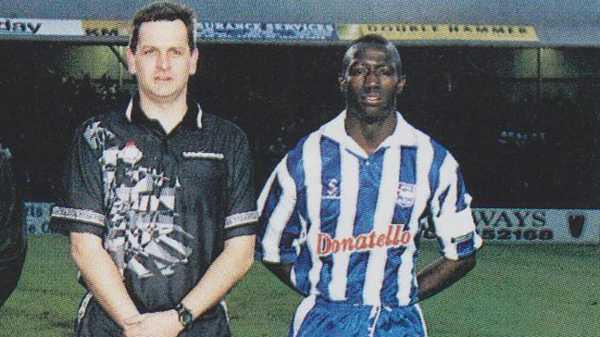
Keith McPherson
“Who did Micky Adams name as Brighton captain for his first game in charge?” A question that only real Albion anoraks are likely to be able to answer, as it was the surprising choice of Keith McPherson.
Defender McPherson had only joined the club a month earlier from Reading. He was one of four players that Jeff Wood gave debuts to in a 0-0 draw away at Hartlepool United – the others being Lee Doherty, Phil King and Duncan McArthur – but such was McPherson’s impression that within four matches he’d been handed the captaincy by Hinshelwood for the trip to Plymouth.
Adams stuck with the decision and McPherson led the side in the final five games of the season. He was one of the few players kept on by Adams that summer, signing a new one year deal. He was a regular at the start of the 1999-00 season as the Albion played with a back three.
Once Adams switched to a four man defence, McPherson found himself behind Andy Crosby and Danny Cullip in the pecking order and he was released at the end of the campaign after 35 appearances and one goal for the Albion. McPherson was last seen coaching in the Berkshire area.
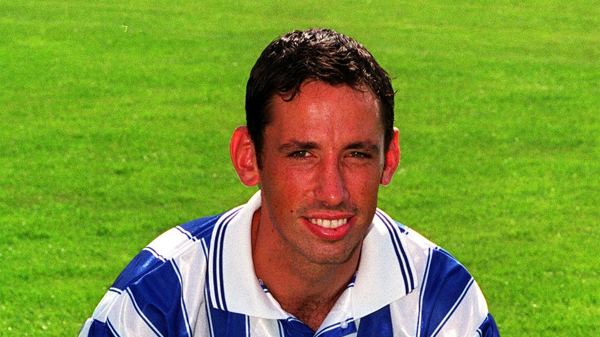
Gary Hobson
Gary Hobson had begun the 1998-99 campaign as Horton’s captain but any hopes he had of leading the team on a regular basis were wrecked by injury. Hobson started the first two games of the season but made just five more appearances between August and Hinshelwood’s caretaker game in charge in April.
He got fit under Adams and played every game from that victory against Plymouth through until the end of the season, as well as starting the first competitive game at Withdean as Mansfield were vanquished 6-0. That made Hobson one of only two players to have played in the final game at the Goldstone and the first back in Brighton, the other being Ormerod.
That turned out to be one of Hobson’s final games for the Albion and in December 1999, he departed on loan for Chester City before singing for York City in the summer of 2000. Hobson made 113 appearances in three-and-a-half years for the Albion and is now a UEFA match agent, responsible for organising pre-season tours for Premier League, Championship and European clubs.
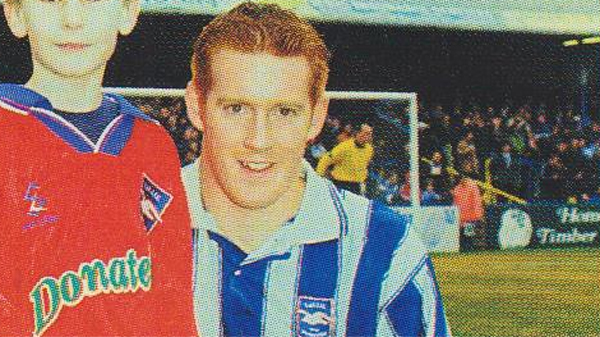
Kerry Mayo
Kerry Mayo was still only 21 when Micky Adams became the fifth manager he’d had at the Albion. At the time, Mayo was still a central midfielder who flirted with left back every now and again. Adams changed all that, starting Mayo at left back in his first game in charge and overseeing the permanent conversion to the position in which Mayo would make the majority of his 412 Brighton appearances.
Not that Adams was convinced, initially at least. The Brighton boss signed Jamie Campbell in the summer of 1999 and doggedly persisted with Campbell over Mayo despite the fact that it was obvious to anyone who wasn’t on crystal meth that Campbell was woeful.
Mayo eventually wrestled the left back berth from Campbell in December 1999 and the rest, as they say, is history. Three promotions followed and Mayo remains in a very select band of players to have made over 400 appearances for the Albion. Mayo is now a director at the company behind the Proballer app, designed to help volunteers run grassroots football clubs.
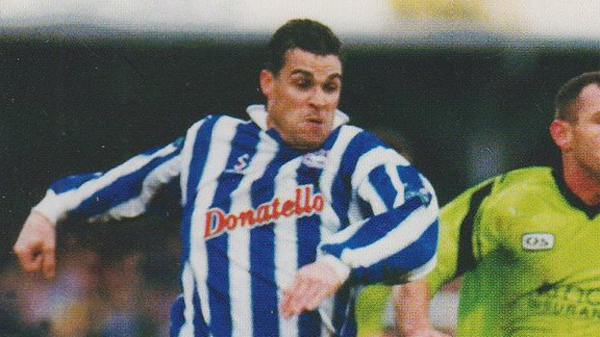
Stuart Storer
Or STORRRREEERRRRRRRR, STUART STORRRREEERRRRRRRR to Brighton fans everywhere. The man who wrote himself into Brighton & Hove Albion folklore by scoring the last goal at the Goldstone was coming to the end of his Albion career, one of the players who Micky Adams ruthlessly released come the end of the season.
Storer’s departure came as something of a surprise. He started every game under Adams between his appointment and the end of the 1998-99 season, but clearly the new manager had a 3-5-2 formation in his mind for 1999-00 and an out-and-out winger like Storer would not fit into such a system.
And so after 152 goals and 14 goals – one of them very famous – Storer’s Brighton career was over. He went onto play for several non league clubs, eventually ending his career as a sweeper with Hinckley United. He is now a driving instructor – and a man who should never have to buy a beer in Brighton whenever he comes back to the city.
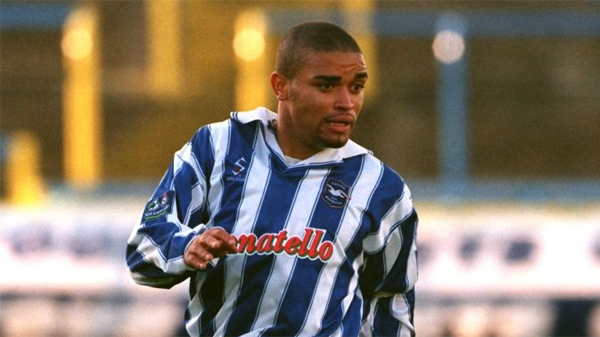
Jeff Minton
The creative heart of Brighton’s 1998-99 team who was voted into the PFA Division Three Team of the Season despite the Albion’s 17th place finish, Jeff Minton was one of the few players who Adams actually tried to keep. Unfortunately for the new boss, Minton was out of contract and Horton wanted to take him to Port Vale with the offer of Division One football and more money.
That was a no brainer for a player who’d earned the chance to test himself at a higher level. Minton left the Albion having played 199 games, one short of joining the 200 club. He popped up with 31 goals in that time, even finishing the 1997-98 campaign as top scorer. Okay, so he only scored seven times, but that’s still a healthy total for a midfielder in a side that came 91st out of 92 in the entire Football League.
Minton’s career at Vale Park lasted 18 months and he went onto play for Rotherham United and Leyton Orient before dropping into non league.
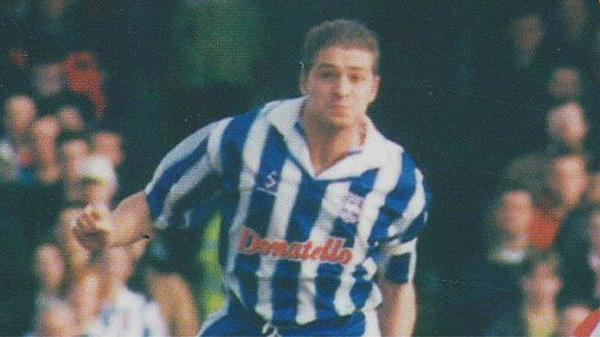
Andy Arnott
Andy Arnott was another rare cash signing for Brighton, arriving from Fulham for £20,000 in October 1998. Alongside his midfield partner Minton, he was one of the first names on the team sheet and captained the side on occasions due to Hobson’s long term injury problems and Ian Culverhouse taking on more coaching responsibilities.
There was one question mark against him – his temperament. Arnott picked up two red cards in the 1998-99 campaign and although he remained involved at the start of the 1999-00 season, his role was reduced by the summer arrivals of Paul Rogers and Charlie Oatway.
By September, he’d departed for Colchester United as part of a swap which saw Warren Aspinall come the other way. Brighton definitely got the better of that deal; Arnott played just 17 times for Colchester while Aspinall became an integral part of Adams’ new look Brighton.
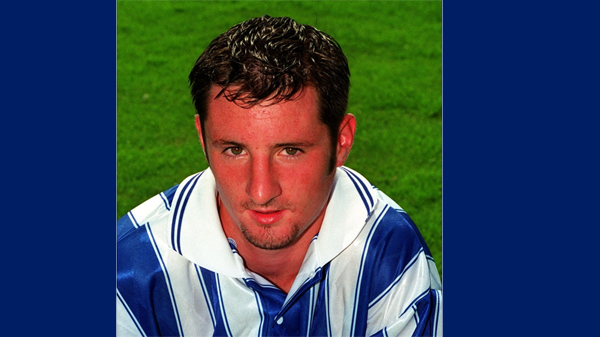
Darragh Ryan
Micky Adams’ first game in charge of Brighton turned out to be Darragh Ryan’s last game for the Albion. The son of Seagulls legend Gerry Ryan had looked decent on the rare occasions he’d been given a chance in the first team, scoring on his debut as a 17-year-old away at Scunthorpe United in November 1997.
Ryan broke his leg a month later away Peterborough, resulting in a year on the sidelines. In his second game back, he’d notched his second Brighton goal in a 3-1 defeat again at Scunthorpe. Clearly, he liked Glanford Park.
Two goals in eight games is a decent return for a teenage winger but Adams clearly wasn’t impressed and Ryan was released at the end of the season. He went onto play for Crawley Town and a strange mixture of League of Ireland sides such as University College Dublin and St Patricks Athletic and Sussex non league outfits like Worthing and Haywards Heath Town. According to Wikipedia, Ryan’s last club was the Dingley Stars in Melbourne.
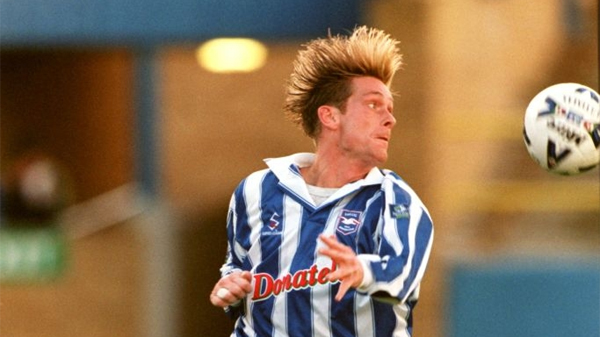
Jamie Moralee
Jamie Moralee was an interesting character during his one season with the Albion. A striker, he managed just four goals in 35 appearances. More notable than his strike rate was his effort in the game away at Scunthorpe, when he came on in the 89th minute with Brighton losing 3-1 and got shown a straight red card within 30 seconds. It must rank as the quickest red card in Albion history – yes, even beating Colin Hawkins against Stockport County a decade later.
Moralee did manage to score under Adams, netting the consolation in a 2-1 defeat away at Rotherham United on the penultimate day of the season. That wasn’t enough to convince Adams to offer him a new deal, and he was released that summer to join Colchester United. Somehow, he’d managed to step up a division.
Moralee went onto play for Barry Town and plenty occurred during his time on the island as they won the League of Wales title three years in a row. Spells with Forest Green Rovers, Newport County and Chelmsford City followed. Moralee is now an agent with a high profile client list, including managing Rio Ferdinand during his playing days.
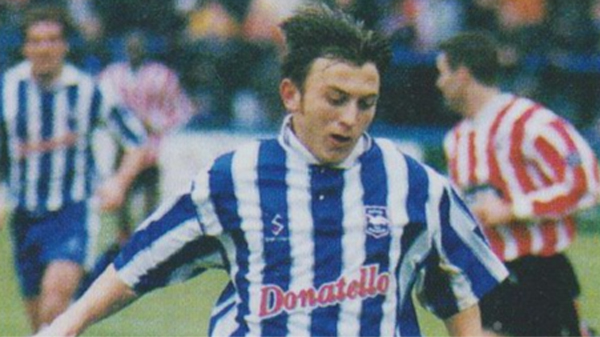
Gary Hart
Oh Gary Hart. The striker famously plucked from non league football for £1,000 plus a set of playing kit had enjoyed a stellar debut campaign with Brighton, notching 12 goals in 48 appearances – including the winner in Adams’ first game.
Hart would be a first team regular for Micky Adams and his successors as Brighton boss Peter Taylor, Martin Hinshelwood and Mark McGhee. He’d go onto serve under Dean Wilkins, Adams again during his second spell at the club, Russell Slade and Gus Poyet, eventually leaving the Albion in the summer of 2011 with a club-record four promotions, 417 games and 46 goals.
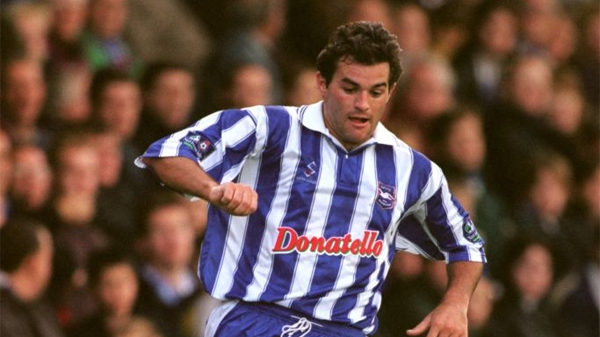
Paul Sturgess (Ryan)
Left back Paul Sturgess arrived on loan from Millwall in September 1998 and impressed enough to convince Horton to turn the deal permanent after a month. He made 31 appearances in the 1998-99 season but was released by Adams in the summer, going onto play for Hereford United, Stevenage Borough and Gravesend & Northfleet.
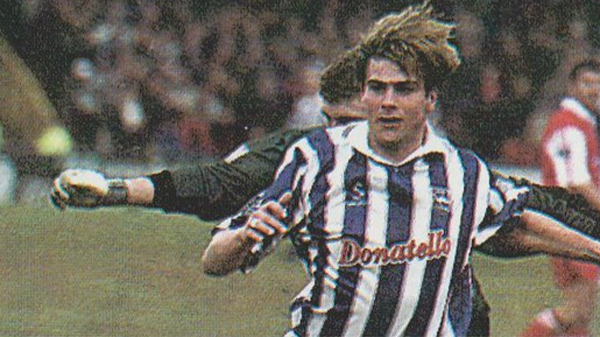
Richard Barker (Hart)
Like Minton, Richard Barker was another player that Adams was keen to keep at the club beyond the summer. The striker was offered a new contract but with his father seriously ill, he turned it down in favour of returning to the North with Macclesfield Town which meant he could be closer to his family.
Which was a real shame as Barker had been a revelation in the 1998-99 season. He scored 12 goals in 46 games to share the top scorer accolade with Hart and their classic target man and runner strike partnership had been one of the highlights of the season.
Barker scored the last Albion goal at Priestfield in the final game of the season against Rochdale, his final contribution in a Brighton shirt. After leaving Macclesfield, he was a regular scorer with Rotherham, Mansfield Town and Hartlepool United before turning his hand to management with Bury, Crawley Town and Portsmouth. Barker is currently assistant boss to Paul Warne back with the Millers.
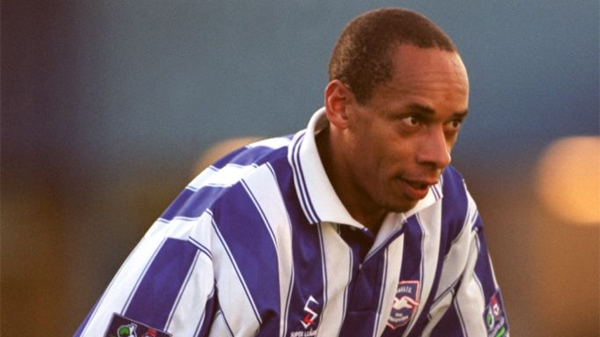
Peter Smith (Storer)
Peter Smith was another long serving player whose Brighton career was brought to and end by Micky Adams in the summer of 1999. The right back had won the Albion’s Player of the Season award in 1994-95, his first campaign after being spotted by Brighton scouts playing non league football while studying at the University of Greenwich.
A somewhat erratic player who veered from sublime to ridiculous performances, Smith was never quite the same once he shaved his long dreadlocks off, a modern day version of Lazarus playing Division Three football. He played 162 times for the club and dropped back into the amateur ranks following his release by Brighton. Smith went onto star as an extra in Dream Team and he now works as an agent alongside Moralee.

